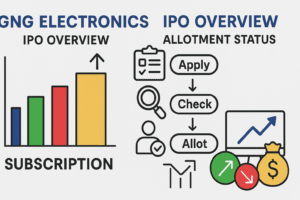
New Income Tax Bill 2025: India Simplifies Tax Laws, Here’s What It Means for You.
The Government of India has ushered in a new era of tax compliance with the Income Tax (No. 2) Bill, 2025 overhauling decades-old rules, reducing red tape, and targeting greater fairness for taxpayers. Explore the essential details, key changes, and expert insights in this definitive guide.
What Is the Income Tax (No. 2) Bill, 2025?
The Income Tax (No. 2) Bill, 2025 represents the most significant overhaul of India’s direct tax regime since the Income Tax Act of 1961. Passed swiftly by the Lok Sabha in August 2025, the new law aims to:
- Simplify and modernize tax compliance by reducing the number of legal sections from over 800 to just 536.
- Minimize ambiguity and legal disputes around subjects like house property income, pension deductions, and refunds for late filings.
- Increase fairness and transparency—incorporating almost all of the 285 Select Committee recommendations after extensive review and feedback from tax experts, industry, and the public.
- Enable more flexible tax refunds, including for returns filed after deadlines, reducing hardship for many taxpayers.
Did you know?
This new Bill was introduced in February 2025, examined over months by a 31-member Lok Sabha Select Committee, and revised to address major concerns before passing both houses by August 2025.
This new Bill was introduced in February 2025, examined over months by a 31-member Lok Sabha Select Committee, and revised to address major concerns before passing both houses by August 2025.
SVG Data Visualization: Section Reduction Trend
Sections in Old Income Tax Act (1961)
Sections in New Bill (2025)
The law is now nearly 35% shorter, helping taxpayers and professionals alike.
Key Highlights: What’s New in Income Tax 2025?
-
House Property Income—Clarity & Simplification
New definitions and methodologies for calculating rental value and deductions. This reduces ambiguity, ensuring fair and straightforward calculation of taxable income from owned or let-out properties. -
Refunds for Late Filings
For the first time, taxpayers who miss the due date (positive) can still claim refunds if eligible—ending the strict denial that existed earlier. -
Pension & Deduction Reforms
Clearer distinction of pension types and deduction eligibility; reduces previous litigation around ambiguities for senior citizens. -
Fewer and Clearer Sections
The massive section reduction means less legalese, easier navigation, and fewer loopholes for tax disputes. -
Select Committee Recommendations Implemented
From taxable thresholds to dispute resolution timelines, over 285 expert-backed proposals are now embedded in law. -
Stakeholder Inputs Adopted
Beyond the Committee, input from industry, tax professionals, and the public led to refinements for greater clarity and fairness.
Warning: The Bill ended earlier provisions that forced strict penalties for missed deadlines—however, necessary safeguards and penalties for deliberate evasion remain.
Who Benefits? Implications for Indian Taxpayers
- Individuals: Simpler filing, less uncertainty, and new refund rights even after late submission.
- Senior Citizens & Retirees: Pension clarifications, reduced compliance burden, and clearer deductions framework.
- Property Owners: Changes streamline valuations but may alter your taxable property income—review your computations.
- Tax Professionals: Reduced risk of litigation, lowered research overhead with concise laws, more certainty in practice.
- Serial Defaulters: Streamlined compliance may tighten enforcement, with updated provisions to tackle evasion.
- Businesses & Startups: Faster refund cycles and reduced ambiguity on deductions enable better cash flow and planning.
Expert Voices
“The revised bill addresses longstanding gaps to simplify interpretation, reduce disputes, and promote fairness.”
– Gouri Puri, Tax Partner
Challenges & Cautions
- Transition Phase: Adjusting practice, software, and forms to the new sections can pose short-term confusion for professionals.
- Legal Interpretation: Even with simplification, intent and language interpretations may evolve via new case law.
- Awareness Gaps: Individual taxpayers must revisit their understanding of provisions, especially for property/rental income.
Implementation:
The new Act is expected to fully replace old rules for the assessment year 2026-27 onwards. Taxpayers are urged to follow government updates as transition FAQs and guides roll out.
The new Act is expected to fully replace old rules for the assessment year 2026-27 onwards. Taxpayers are urged to follow government updates as transition FAQs and guides roll out.
Frequently Asked Questions: New Tax Bill 2025
The old Income Tax Act, 1961 was complex, outdated, and full of ambiguous provisions. Its 800+ sections led to compliance headaches and frequent legal battles—the new Bill promises clarity, fairness, and modern digital alignment for both taxpayers and administrators.
Yes! Under the 2025 rules, eligible taxpayers who file late returns will be able to claim refunds—ending the harsh “no refund” rule under late filing in the old system, provided the delay isn’t due to tax avoidance or fraud.
The new law brings clear definitions and calculations for rental values, standard deductions, and self-occupied/vacant properties—minimizing confusion and disputes over taxable amounts.
The Bill is designed for a smooth transition without disrupting major deadlines. Guidance notes and helpdesks will clarify documentation and compliance during the initial assessment year.
Yes, intentional evasion or false reporting will still face strict penalties. However, procedural lapses will now have proportionate, less draconian penalties, focusing on correction and compliance rather than punishment.








Post Comment